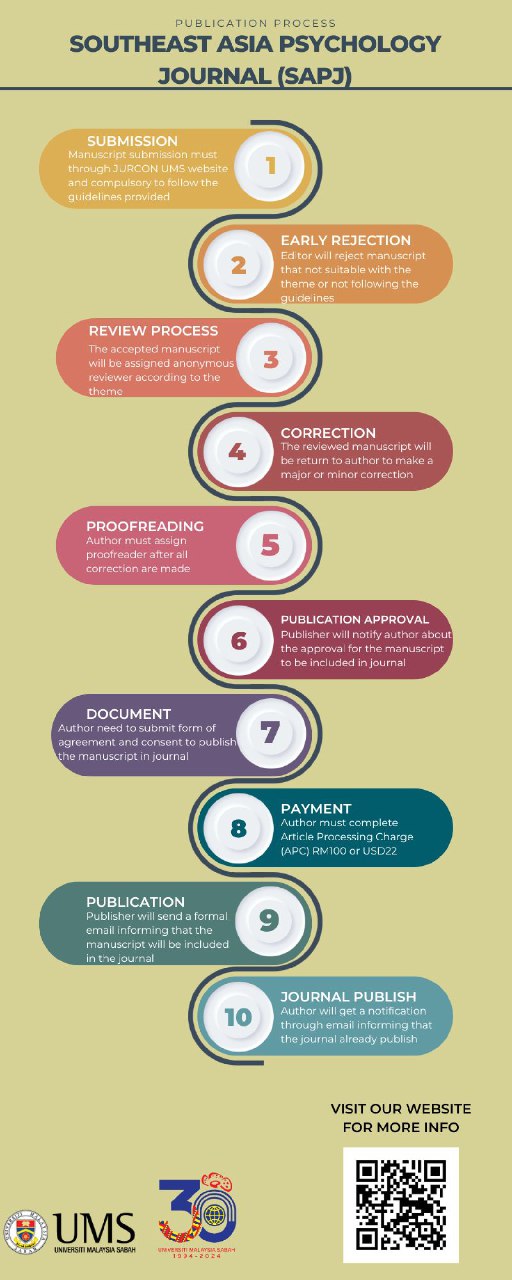UNDERSTANDING MENTAL HEALTH IN THE CONTEXT OF THE PAGDADALA (WELLBEING NARRATIVES) OF FILIPINO COLLEGE STUDENTS
DOI:
https://doi.org/10.51200/sapj.v8i2.5133Keywords:
Mental Wellbeing; Mental-Health; Mental Health Literacy; Wellbeing-Centered Education; Decenteceo Pagdadala ModelAbstract
Education plays a vital role in promoting mental health (MH). However, there is a lack of a unified, holistic, and contextualized understanding and application of MH processes in an educational setting. With that gap, the study explores the wellbeing (the pagdadala) of Filipino college students to broaden the traditional understanding and approach of MH in an educational space. To describe and immerse in the narratives of students, the researcher used Decenteceo’s Pagdadala (Life Narrative) Model. The participants’ wellbeing is multi-faceted, mostly about their academic and personal lives. Anchored in empirical studies and fundamental mental health suppositions, the stories of struggles, sentiments, strengths, culture, and lifestyle of Filipino students cover the essential concerns of mental health. Echoing the voice of students, MH, in an educational space, goes beyond the traditional approach. It requires diving into students’ life-realities, developing culture-sensitive and student-centered intervention and measures, and collaboration between MH experts and education stakeholders.
References
Akbaba, S. (2014). A comparison of the burnout levels of teachers with different occupational satisfaction sources. Educational Sciences: Theory and Practice, 14(4), 1253-1261.
Aldridge, J. & McChesney, K. (2018). The relationship between school climate and adolescent mental health & wellbeing. International Journal of Educational Research, 88, 121-145.
American Psychiatric Association (2016). Position Statement on College and University Mental Health. APA, 1-3. www.psychiatry.org/File20Library/About-APA/OrganizationDocuments Policies/Policies/Position-2016-College-andUniversity-Mental-Health.pdf.
Barden, S., Conley, A., & Young. M. (2015). Integrating health and wellness in mental health counseling: Clinical educational, and policy implications. Journal of Mental Health Counseling, 37(2), 152-163.
Berman, D. & Berman, J., (2005). Positive psychology and outdoor education. Journal of Experiential Education, 28(1), 17-24.
Bjornsen, H., Eilertsen, M., Ringdal, R., & Espnes, G. (2017). Positive mental health literacy: Development and validation of a measure
among Norwegian adolescents. ABMC Public Health, 17(717), 110.
Bonell, C. (2018). The challenges of promoting mental health in schools and the importance of trial evidence in surmounting these: A response to humprey. The Psychology of Education Review, 42(1), 22-24.
Bonfiglio, R. (2016). Anticipating the future of mental health needs in campus. New Directions for Student Services, 156, 97-104.
Bovier, P., Chamot, E., & Perneger, T., (2002). Perceived stress, internal resources, and social support as determinants of mental health
among young adults. Quality of Life Research, 13, 161-170.
Brooks, K., Karp, L., Ramirez, H., Chiu, M., & Montross, C., (2015). A student collaboration to address mental health wellness in medical school. Rode Island Medical Journal, 26-27.
Burwell, S. (2018). Generation Stress: The mental health crisis on campus. Foreign Affairs, 150-155.
Chen, M. & Jiang, S. (2019). Analysis and research on mental health of college students based on cognitive computing. Cognitive Systems
Research, 56, 151-158.








